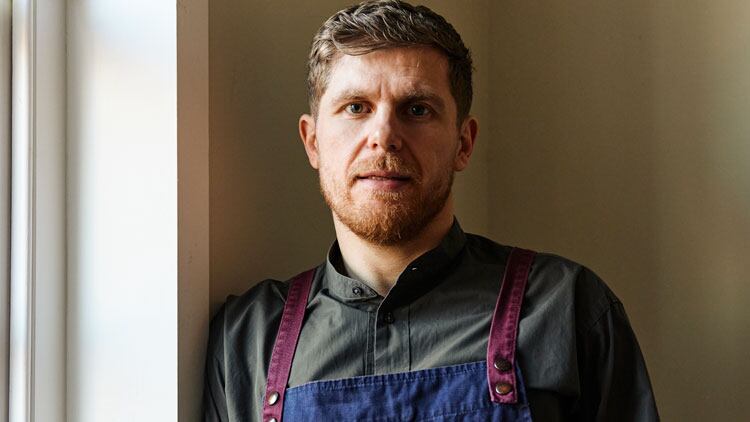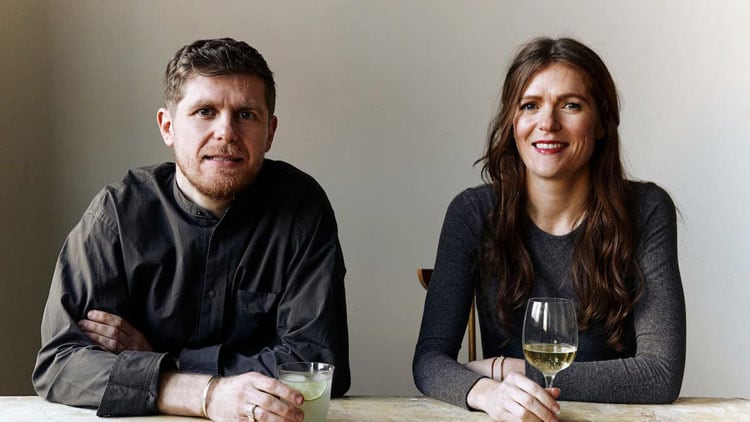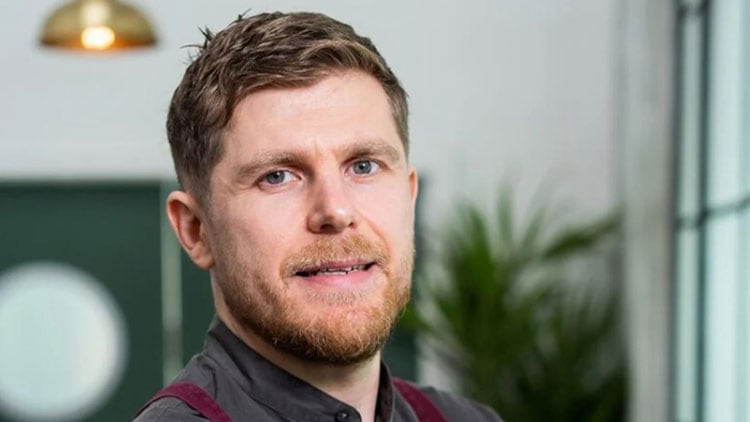Plates is described as ‘plant-based centric’. What does that mean?
There will be no meat, fish or dairy in the kitchen when we open mid next month. I don’t like putting labels on my food and I don’t like the political connotations of the word vegan. I’m trying to create a restaurant that is as exciting, creative and delicious as anything else out there. My job is to make a carrot dish as sexy as a scallop dish. But I'm not here to tell people what to eat. Plates reflects the journey I have been on with my own diet after being diagnosed with Lyme disease.
A lot of vegan restaurant brands are struggling. Some are even being forced to put meat on the menu. Won’t only offering plant-based food put people off?
In terms of what we do, no. I fully believe in it. It's way more than that word. We are being bold because we believe in the product that we have created. But I do understand why some vegan restaurants are introducing non-vegan products. It’s brutal out there. We want to deliver at such a high level that people won't even think about the word vegan.
Plates started as a pop-up in 2017 before establishing a residency. How will the permanent restaurant differ?
At our last place it was just me and one other chef so we were limited in what we could do. At the new site, Keeley and I are offering a full dining experience. We are determined to make Plates a special place through the food, the aesthetics and the service. It will be real northern hospitality. We will offer kindness, generosity and comfort.
You’re a plant-based chef. Other than that, how would you describe your cooking style?
My cooking is technical, but it is steeped in an understanding of classical techniques. It’s necessarily very creative because there’s no manual for this sort of food. We are starting with a blank canvas, which is cool. I spent 15 years cooking and eating in restaurants that served meat and fish. When I eat one of my dishes now, I think ‘what would the old Kirk make of that?’. It has to give the same feeling, or better, as food cooked by a chef that can use whatever ingredients they like.
You've done very well on GBM – will those dishes feature?
Most of my dishes from the two series I have appeared in will be on the menu. People want to try them. Plus, I’ve already put a lot of development work into them so it makes sense to launch with them.
You're the son of Nigel Haworth. Did you always want to follow in his footsteps?
My mother always told me not to be a chef because I'd end up working all the time and wouldn’t be able to get a girlfriend or see my mates. My dad worked like crazy, and they ended up splitting up over it. He didn't force me into the kitchen, but he wanted me to work for my money so at 13 I was spending my Saturday mornings scrubbing scrambled eggs off the bottom of the pans at Northcote (which his father oversaw as head chef at the time). I thought it was horrendous.
At what point did you start to get serious about cooking?
I started to do basic prep jobs like picking spinach and peeling onions towards the end of my time at secondary school. I wasn’t studious so I didn’t do that well in my exams. When I was 16, my dad bought me a chef's jacket for Christmas. I put it on and never looked back. I learnt the basics of cookery over a five-year apprenticeship at Northcote.
What was the dynamic like between you and him in the kitchen?
I got a lot of stick when I came to London to work at The Square and later under Shane Osborn at Pied à Terre because people thought I’d had an easy time of it because my dad was a Michelin-starred chef. But it was the opposite. He overcompensated by being tougher on me than anyone else. After London I went to Sydney to work for Mark Best at Marque and for Peter Gilmore at Quay. Towards the end of my time in Australia I started to get ill.
But you didn't know it was Lyme disease at that point?
No. It took about five years to be diagnosed. I was in a lot of pain, but I masked it because that is what people do in kitchens. I put my career before everything else. Upon returning to the UK, I worked with my dad for a bit before taking a job at Restaurant Sat Bains. He’d just introduced a four-day week, but it was still tough. We worked from 7am until midnight. I was very ill. Towards the end I was so fatigued by the work and the pain my memory started to deteriorate. I was a sous chef, but I often couldn’t remember what orders I’d put in or how many plates I needed to put on the pass. After about a year I left to focus on finding out what was wrong with me.
How long did you take out of the kitchen?
A little over a year. By chance, I realised I had all the symptoms of Lyme disease. The private clinic that carried out the test recommended high dose antibiotic therapy five days a week at a cost of £6,000 a month. I couldn’t afford that, and through my own research I knew that antibiotics destroy your gut flora, which is the basis of our immune system. So, I looked at more natural treatments including herbal protocols and gut-brain communication, which utilises quantum physics.
And you also started to look more closely at the food you were eating...
Yes. Like most chefs, I had been living on a very poor diet. I drank a lot of Red Bull and dinner was often KFC at 2am. I started putting my passion and energy into cooking for myself rather than just other people and exploring which foods worked for me and which ones didn’t (among other things, Haworth realised he was dairy intolerant). I can now control most of my symptoms through my diet. I’m no longer on any medication but my lifestyle is now based entirely around my health.
What is your sister Keeley's role in the business?
Plates would be nothing without her. She also worked for my dad (in a front of house role) and at a few other restaurants, but she also has a degree in nutrition and her own food-focused creative agency. We've always said we'd like to open a restaurant together, but we never thought it would be something like this. She has built our brand and is also my agent.
Your dad is famous for his hearty, meat-based cooking. What does he think about the direction you've taken with Plates?
He's super proud. He's seen the journey and the work I've put in to get better and how that feeds into what we're doing at Plates. He’s not got any money or say in the business. But he does nick my recipes for his plant-based dishes occasionally.




